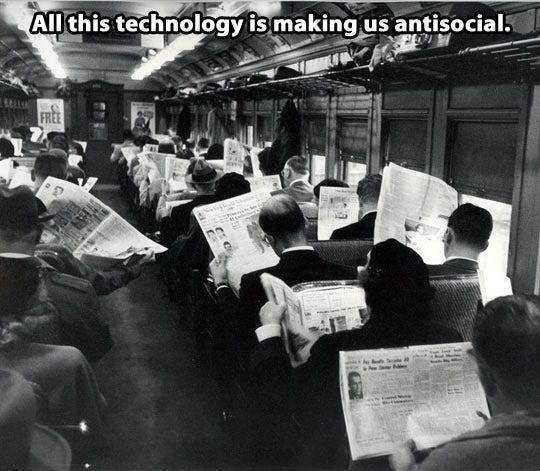(1.4) Douglas Rushkoff, Chapter 2
These chapters seem to view technology in a negative light but the author remains hopeful about how and why we use it today. Technology, however, is not inherently good or bad. It depends on how you use it. One thing that never crossed my mind is how the advent of digital technology has displaced local businesses (Rushkoff, p. 40). I always saw it in a positive light without considering the negative ramifications. In my mind, local businesses now had the opportunity to reach global markets and increase their profits and productions. But now, those businesses no longer have any stock in their local communities and big business have the advantage. Rushkoff summed it up on page 45, "Powerful global companies become weak local ones, while promising local companies become weak global players." This is not to say that in the end, we are better off without these technologies, but on occasion, we are spreading ourselves too thin.
Also, I do agree, to an extent, that digital technologies have alienated us from our local communities, but this is assuming that we would feel a personal connection to them in the first place. When I think about this argument I think about the criticism of people being on their phones on the train and not interacting with each other, which makes me think about this image:

It is a little overblown, but it gets the point across. People will find a way not to talk to each other, especially if they do not have any previous connections. This isn't a recent development. Also, most times people are on their phones communicating with others from halfway across the country or even someone they are about to meet that are in their personal network. It does not make sense to discount people on their phones as dislocated. Yes, digital media is biased towards dislocation, but it is dislocating in how we decide to use it.
Comments
Post a Comment